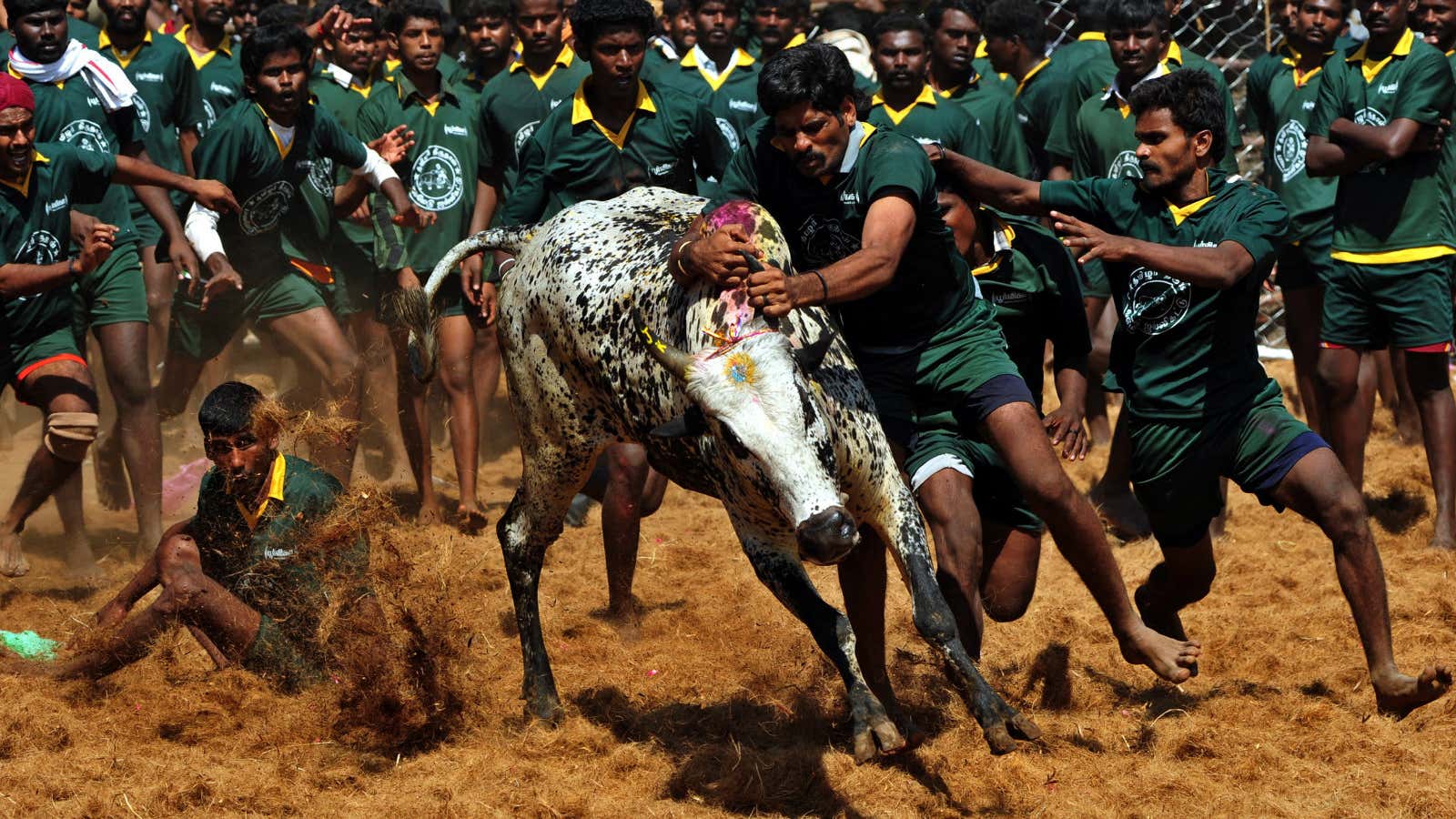On a day when Tamil Nadu legalised the bull-taming sport, Jallikattu, following massive protests, the southern Indian state reported several incidents of violence and chaos.
In the run-up to the Tamil harvest festival, Pongal, in January, protesters had begun gathering across one of India’s most developed and industrialised states, seeking a reversal of the 2014 supreme court (SC) ban on the controversial tradition. The ban was prompted by complaints of animal cruelty. A part of the region’s culture for thousands of years, Jallikattu involves men chasing and taming a raging bull.
Since Jan. 17, three days after Pongal, thousands had been camping at the Marina Beach alone in the state capital Chennai. The protests had also spread to towns like Madurai, Coimbatore, Trichy, and Salem.
On Jan. 21, the state government cleared an ordinance, an executive fiat valid for a maximum of six months, permitting Jallikattu. By the end of the chaotic day on Jan. 23, the government had passed the bill making the sport legal.
Meanwhile, the police were deployed to evict protestors after several vehicles were torched during the violence. Tear gas canisters were lobbed to disperse stone-pelters. Videos also showed police high-handedness, with many personnel caught smashing motorbikes and setting fire to auto rickshaws.
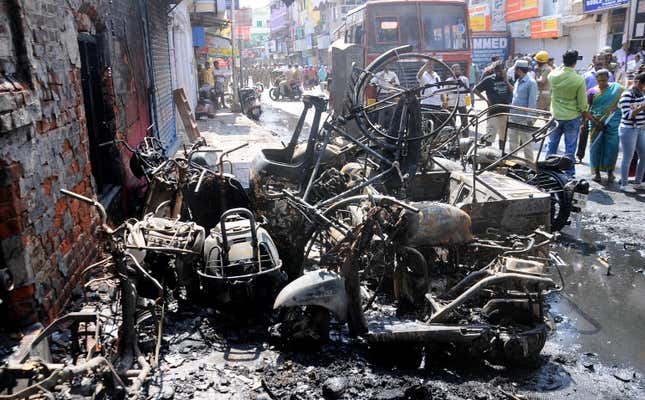
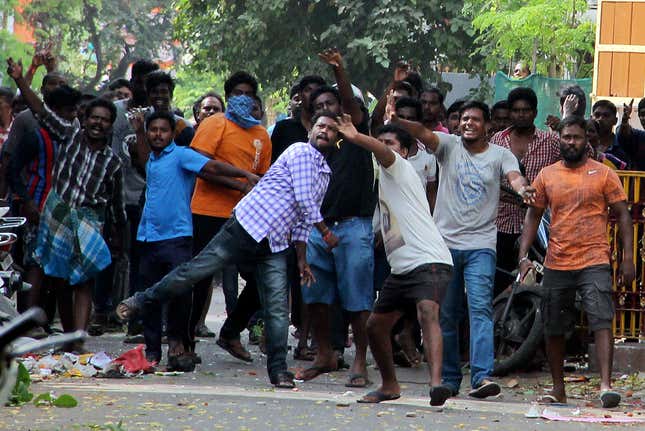
“They started attacking the police, blocking traffic, and sending alarming messages on social media. Police exercised the utmost restraint,” Chennai police commissioner S George told the Hindu newspaper.
Many prominent citizens and celebrities, such as movie star Kamal Haasan, urged calm even while voicing support for the protests. Meanwhile, two persons died and 83 were injured during the various Jallikattu events across the state on Jan. 22.
Here’s a timeline of how the Jallikattu controversy has unfolded in Tamil Nadu:
May 2014: India’s SC passes a judgment in favour of the Animal Welfare Board of India (AWBI) and the People for the Ethical Treatment of Animals (PETA) clarifying that bulls must not be used in Jallikattu, bull races, bullfights or any other type of performance.
January 2016: Days before the Pongal festival is held—around the time Jallikattu is organised—the Narendra Modi government revokes the ban through a notification permitting the sport. PETA and others challenge the notification, following which the top court stays the government notification.
November 2016: The SC dismisses a plea by the Tamil Nadu government to lift the ban.
Jan. 9, 2017: Tamil Nadu chief minister O Panneerselvam requests the Modi government to pass an ordinance allowing Jallikattu during Pongal even as the state awaits an SC order.
Jan. 12 2017: The SC says it will not give a verdict on permitting Jallikattu on Jan. 14, the date on which Pongal falls. That meant Jallikattu would remain banned.
Jan. 16, 2017: Two days after Pongal, villagers in Alanganallur in Madurai district—home to the the most famous Jallikattu event—begin a protest.
Jan. 17. 2017: Thousands begin gathering along the six-kilometre promenade of Marina Beach in Chennai to protest the SC ban. They believe the ban is an invalidation of the Tamil identity and demand that the Modi government promulgate an ordinance to lift the ban; they also want PETA banned.
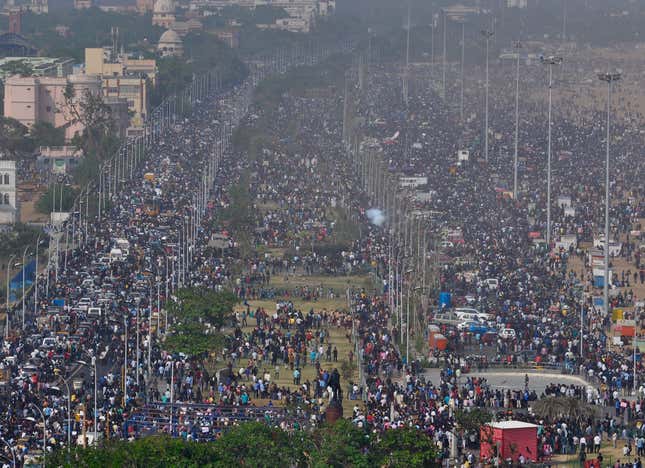
Jan. 19, 2017: As the protests spread, film stars, cricketers, and other celebrities back Jallikattu. Panneerselvam meets Modi seeking help. ”While appreciating the cultural significance of Jallikattu, prime minister Modi observed that the matter is presently sub-judice,” the prime minister’s office said.
Jan. 21, 2017: The state government passes an ordinance allowing Jallikattu. The move follows the Modi government’s approval. As the subject falls in the concurrent list of the Indian constitution, in which both the state and central governments have a say, a nod from New Delhi is required for such legislation.
Jan. 22, 2017: Jallikattu is held across Tamil Nadu. Two die in such events. No event in Alanganallur as angry protestors demand a permanent solution. Panneerselvam is forced to return to Chennai without inaugurating the Alanganallur event.
Jan. 23, 2017: Violence reported, particularly in Chennai, where the police use force to evict protestors. Vehicles are torched and the police beat up protestors. Around 30 bikes are set ablaze and 20 officials are reportedly injured. By evening, the Tamil Nadu state assembly passes a bill to replace the ordinance following which the state’s governor sends the bill to president Pranab Mukherjee for approval.
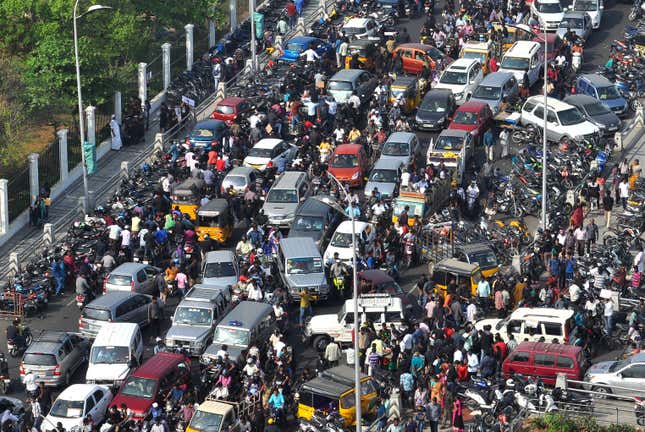
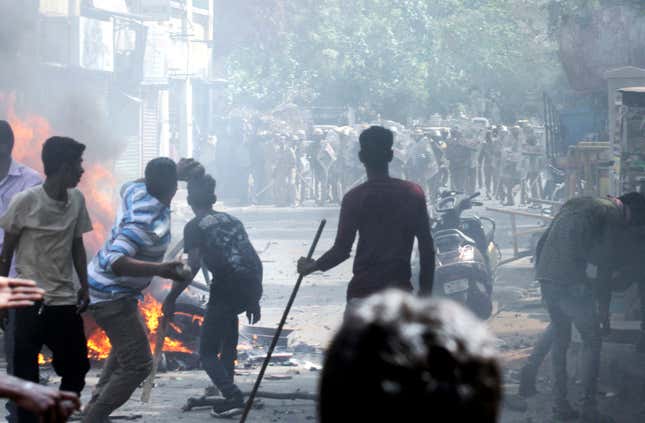
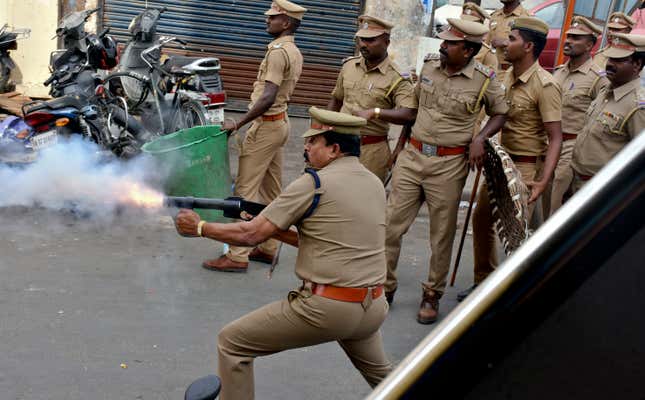
Jan. 24, 2017: The Modi government says it is monitoring the situation in Tamil Nadu.
